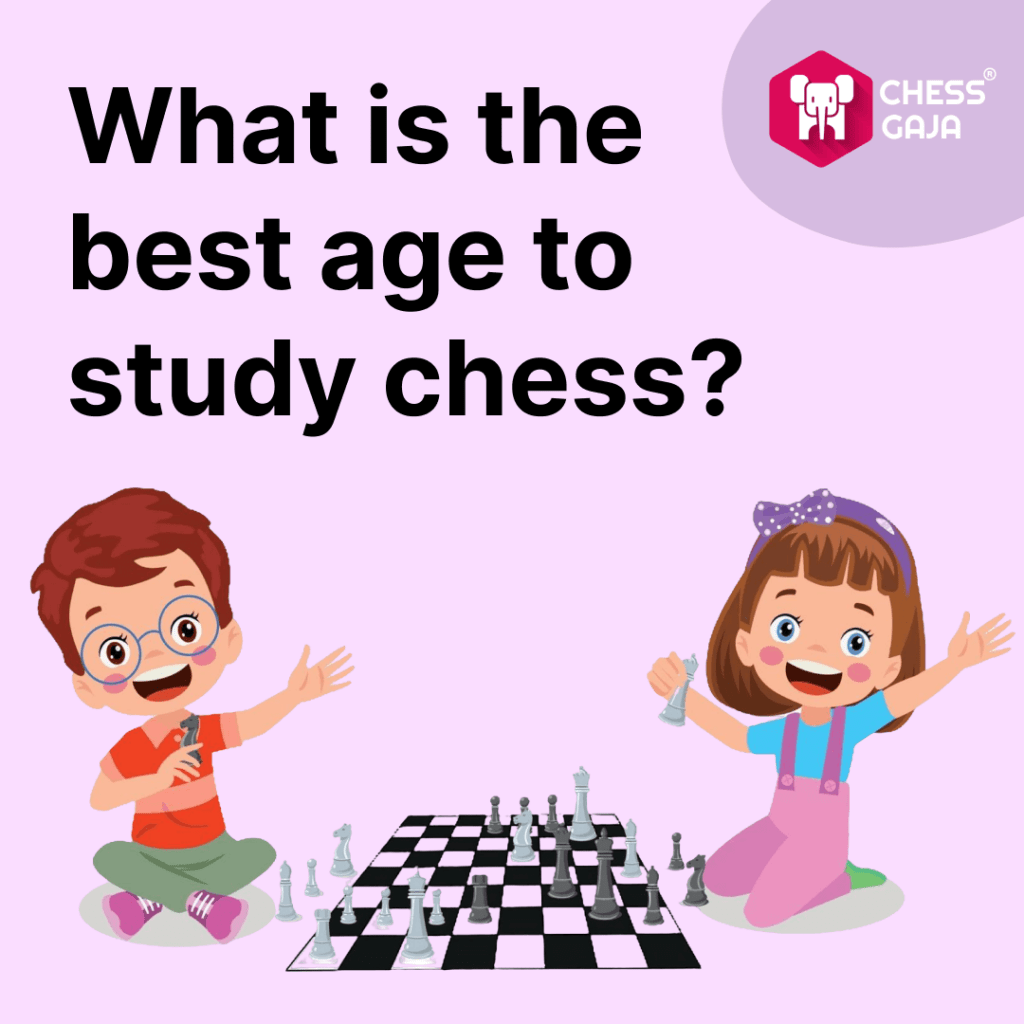Table of Content
Updated on January 2025,
What is the Best Age to Study Chess?
Chess is a timeless game that challenges the mind, enhances critical thinking skills, and cultivates strategic planning abilities. As a parent or guardian, you may wonder about the ideal age for your child to study chess. In this blog, we will delve into the best age to study chess, discuss when and where to start, and provide additional tips for parents to support their child’s chess journey.
When to Start?
The best time to start learning chess depends on the interest and readiness of the child. While traditionally, experts have recommended starting around 4-5 years old, recent trends and remarkable achievements by young players suggest that children can begin even earlier if they show an interest. For example, young prodigies like Misha Osipov, who played with Grandmaster Anatoly Karpov at the age of three
Anish Sarkar, who has made waves with his chess achievements at a very young age, exemplify the potential of starting early. The prodigy has become the world’s youngest-rated player by earning his first FIDE rating, which is 1555.

At Chess Gaja, we had a student who began learning chess with us at four years old. He had two classes per week, each lasting 30 minutes, and his parent joined him through a video call. Starting chess at a young age like this requires parents to supervise and put in a little more effort. If you’re a parent, please read the additional points below on how you can support your child during their chess journey.
Here are some additional tips for parents on how to support their child’s chess journey:
- Make it fun: When kids are learning chess, it is important to make it fun. Play with them, turn it into a game, and praise their efforts even if they don’t win. As kids grow older, they may develop a competitive spirit, which is good, but remember that chess should remain enjoyable.
- Set realistic expectations: Don’t expect your child to become a grandmaster overnight. It takes time and practice to excel at chess.
- Be patient: Learning chess requires time and effort. Encourage your child and motivate them even if progress seems slow initially.
- Encourage social play: One of the best ways to improve at chess is to play with others. Encourage your child to play with friends, family members, or peers.
- Get involved: If you are interested in chess, participate in your child’s journey. Attend tournaments, watch chess videos together, and explore chess books for young learners.
With your support, your child can have a lot of fun playing chess and develop valuable skills that will benefit them throughout their lives.
Where to Start?

Chess Gaja is the ideal destination for your children to learn chess. Our structured curriculum, led by GrandMaster Priyadharshan Kannappan, caters to all levels—from beginners to advanced players. GM Priyadharshan himself started learning chess at the age of 6.5 and went on to become a top player in state and national-level events, ultimately making chess his professional career.

Under his guidance, Chess Gaja provides:
- A structured curriculum that covers chess fundamentals and advanced strategies.
- Passionate and highly skilled coaches who tailor lessons to each student’s needs.
- Classes across all time zones to accommodate busy schedules.
- Ongoing support to help students continuously improve.
Benefits of Learning Chess at Chess Gaja:
- Structured Curriculum: Our lessons are designed to systematically build your child’s skills.
- Experienced Coaches: Our instructors are dedicated to nurturing talent at every level.
- Flexibility: Classes are scheduled to suit your convenience.
- Supportive Environment: We foster a learning environment that encourages growth and confidence.
Recent Achievements to Inspire Young Learners
Chess is an evolving game, and the accomplishments of young players continue to inspire the next generation. Recently, Gukesh D. became the youngest World Chess Champion at just 18 years old, showcasing the heights that young talent can achieve.

Similarly, Anish Sarkar, a rising star, has demonstrated that starting chess at an early age, combined with dedication and proper guidance, can lead to remarkable success. These stories highlight that there is no single “perfect” age to begin; the key is fostering interest and providing the right resources.
Book recommendations for the young chess players:
- Learn Chess the Right Way (5-book series) by Susan Polgar
- Chesspa In Chess Adventure Park – Children’s Chess Book by ChessBase India
If you are looking for high-quality chess education for your child, Chess Gaja is the perfect choice. Contact us today to learn more about our programs and addit




